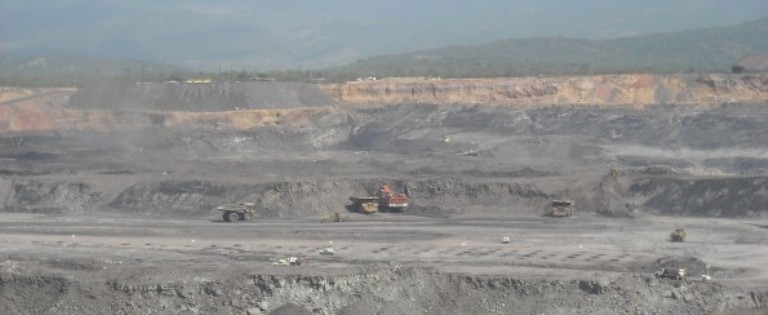The National Contact Points from Switzerland, Australia, and the United Kingdom admitted the complains that several Colombian and international organizations filed against the multinational companies Glencore, Angloamerican, and BHP, the owners of the company Carbones del Cerrejón, which for two decades have profited from the largest open-pit coal mine of Latin America in La Guajira, Colombia.
Last January 10, several organizations belonging to the Organization for Economic Co-operation and Development (OECD) accepted the complaints filed against the multinational companies BHP, Angloamerican, and Glencore, accusing them failing to comply with OECD guidelines on multinational companies and human rights in the operations management at the Cerrejón mine. The complaints were introduced in 2021 before the OECD National Contact Points, located in Switzerland, Australia, and the United Kingdom by national (CAJAR, CINEP, and AIDA), and international (GLAN, ABColombia, Ask, and Christian Aid) organizations. It was also supported by several leaders of indigenous Wayuu and Afro-Campesino communities that have been historically affected by this extractive megaproject. After analyzing the complaints, these agencies published an initial assessment statement in which they found sufficient grounds for further examination of the issues raised. In this way, the national points will continue to assess the conduct of multinationals in their contributions to the negative human rights and environmental impacts of the mine in Colombia in light of the minimum standards established by the OECD Guidelines and UN Guiding Principles on Business and Human Rights.
The content of the complaints focused on denouncing the participation and direct liability of these companies in the systematic and serious violations of environmental, human and cultural rights which have been built up after the coal exploitation, revealing their failure to comply with standards of due diligence and responsible business conduct. In addition, it was alleged that these breaches have disregarded the enhanced protection and greater attention that these companies should have observed with respect to the impacts of their businesses in contexts where human rights may be more vulnerable by involving ethnic peoples, women, children, among other groups, as established in the OECD guidelines. Despite the fact that the constant violations of mining extraction have been proven and recognized in the highest national courts, such as the Constitutional Court, the responsibility of the foreign parent companies that own Carbones del Cerrejón remains unaddressed.
For decades, the multinational companies have excused that they have no corporate responsibility for the violations associated with the mine in Colombia by arguing a supposed minority participation, when the reality is that they were jointly and equally the owners and direct beneficiaries of the same company.
The complaints were filed prior to the recent purchase of the entire mine by the Swiss mining company Glencore. Thus, the performance of the outgoing Australian and British companies BHP and AngloAmerican will be evaluated. The complaints had warned the OECD that the responsibility of the outgoing multinationals involved in these massive human rights violations at the Colombian mine cannot be ignored. This is a point to be considered in a particular way according to the responsibilities and obligations of a responsible disengagement.
Due to this transaccional move by Glencore, one of the decisions preliminary announced is that the complaint process will be led by the Swiss National Contact Point, with support from its counterparts in the United Kingdom and Australia. In a scenario of climate crisis in which tensions are reconfigured between the urgency of a progressive abandonment of fossil fuels and plans to deepen extractivism, it is necessary to contemplate a responsible exit of companies. For this reason, we call for the dimensions of Glencore’s purchase of Cerrejón in Guajira to be studied, especially after its questionable exit through the Prodeco group in the department of Cesar. In this scenario of evaluating corporate responsibilities, it is clear that it cannot simply sell its shares without making full reparations and answering for its liabilities in human rights violations. Protocols for next steps in complaints evaluation will be established in the next stage. Through the exposure of this problem in these instances, it is expected to generate a reference for discussion regarding the complex framework and architecture of impunity, asymmetries and abysmal gaps faced by the victims of multinational companies in the coal chain. In the same way, given the extrajudicial and voluntary nature of this mechanism, it is necessary to continue promoting changes towards a binding treaty on business and human rights that includes real scenarios of justice over the unlimited transnational corporate power.

